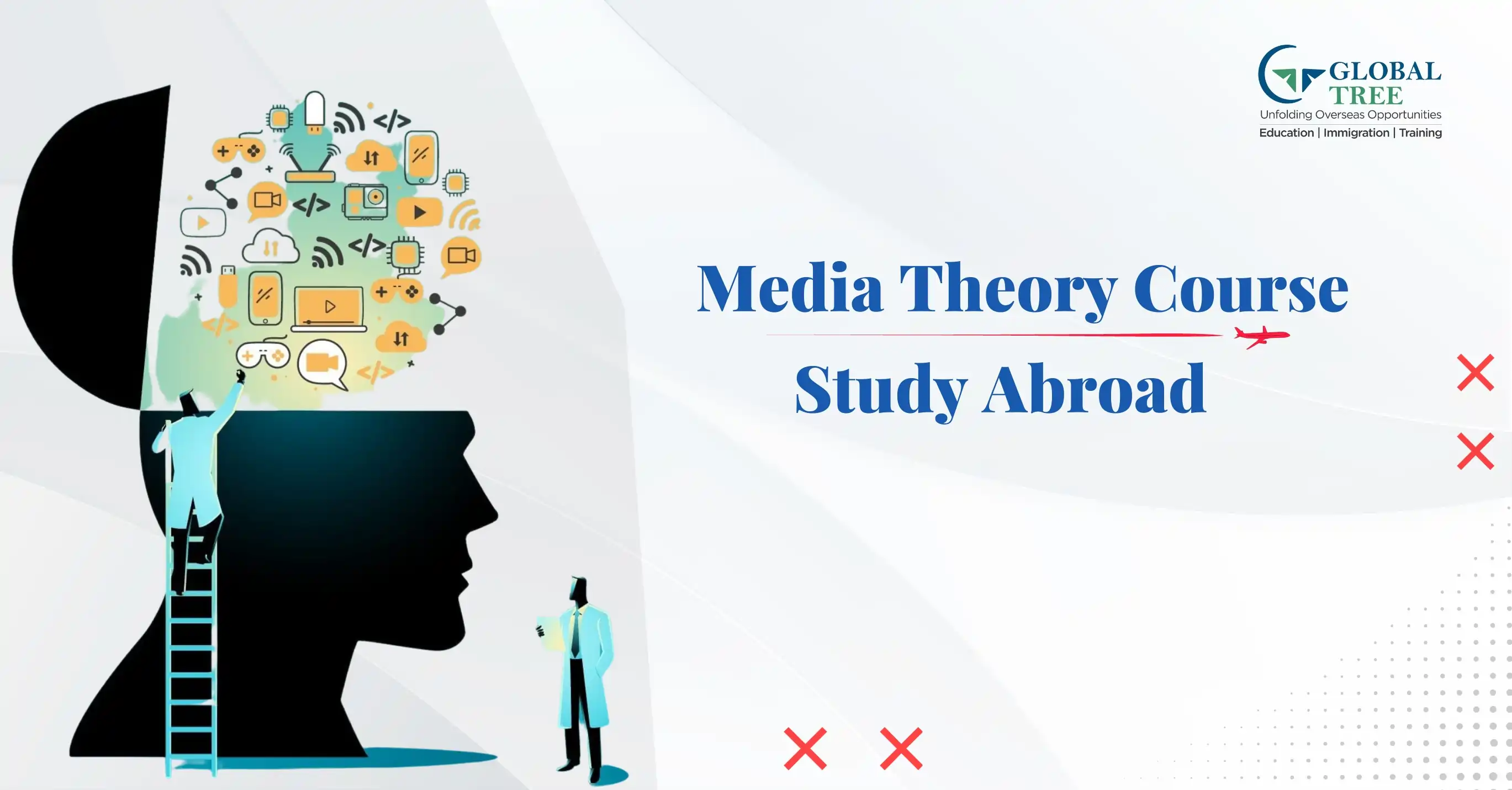Media Theory Course to Study Abroad

Introduction
Media Theory focuses on how the media affects society, including new textual experiences and new communication techniques. One outcome is the evolving relationship between people and technologies, particularly in light of identity and community. This theory supports media academics in better comprehending the industry because of the crucial function that the media plays in the production and spread of common symbols.
Media relations, strategic communications, social media campaigns, digital marketing, reputation management, issue advocacy, and site design and development are common course topics that you may anticipate studying. Choose the Best Media Theory Course & Colleges to Study Abroad.
Who is eligible to study Media Theory Course Abroad?
Media professionals should be able to operate recording and editing equipment as well as other broadcast-related devices, which requires a combination of creative and technological skills. In order to publish tales on websites and mobile devices, they need also be able to employ multimedia and publishing tools. They also demand effective interpersonal, teamwork, and communication abilities.
Media professionals must be persistent and prepared to put in unusual hours if they want to succeed in a fast-paced business. If you consider yourself to have the aforementioned traits, media theory is the course for you.
How much does it cost to study Media Theory Course Abroad?
To start a career in media, you need a bachelor's degree in media theory, communication, or a related field. It takes about 4 years to complete in the US and costs $8,390-$26,586 per year. One to two years of full-time study are needed to earn a master's in media theory at a US university, and the average cost is $19,934. A bachelor's degree in the UK can be earned in three years at an average cost of £9,250 each year. Depending on whether you study full- or part-time, the master's degree can be earned in one to two years, with fees ranging from £8,350 to £15,950.
What is the Future Scope of Media Theory Course Abroad?
The U.S. Bureau of Labour Statistics projects a 14% increase in employment for media and communication occupations between 2020 and 2030. This is substantially quicker than the average for all occupations and will lead to the creation of a remarkable 151,500 new jobs! Demand for media and communication careers is anticipated to be driven by the need to create, edit, translate, and transmit content across a variety of channels.
Trending Career Options in Media Theory Course Abroad
Students who are interested in pursuing a career in media theory have a variety of options to consider.
(Read more: most prestigious scholarships to study abroad)
Career as a Media Scheduler
To maximize the efficiency of advertising campaigns across a number of media channels, you'll work as a media planner for marketing agencies or media planning and buying corporations. In order to develop practical strategies for ensuring that campaigns reach their target audiences, you'll use research and creative thinking. Additionally, you'll need to decide which media to use for particular clients and campaigns.
Career as a Communications Professional
Communications experts oversee both internal and external communication. They are also known as public relations specialists. They are in charge of social media, advertising campaigns, media inquiries, and public relations. Professionals in communication write press releases, react to questions from the media, plan press events, and produce publications.
(Read more: What Are the Future Prospects for Digital Production Courses Abroad?)
Career as a Specialist in Social Media
Social media experts plan and oversee a company's social media programme. They use a social media approach to improve marketing initiatives, increase sales, and boost company revenue.
Career as a Journalist
Journalists inform the public about a wide range of topics, including politics, entertainment, and sports. They generate unbiased news that individuals can utilise to form their own opinions on the current problems. In order to produce thorough reports, journalists also compile data and conduct topic interviews.


